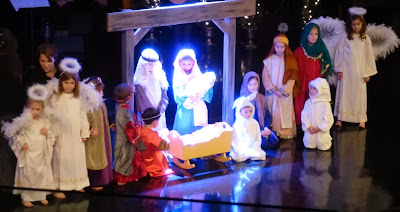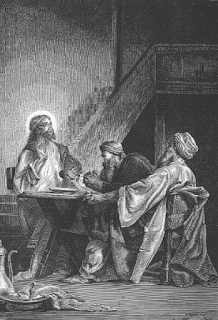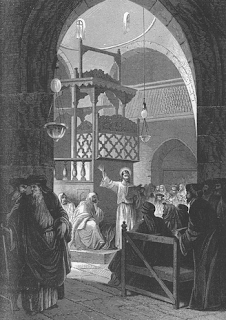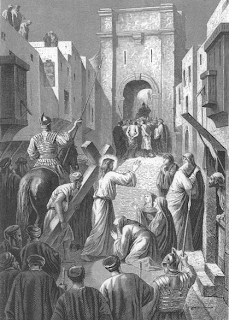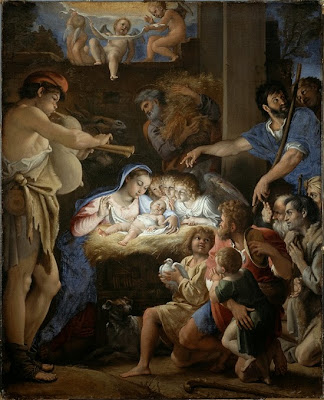
TO CHEW ON: "But Mary kept all these things and pondered them in her heart." Luke 2:19
From the day the angel came to Mary with the almost incomprehensible message, "The Lord is with you; blessed are you among women .... You shall bring forth a Son .... and of His kingdom there will be no end," her life was changed (Luke 1:28-33).
When she went to visit her relative Elizabeth, she was greeted with more unusual words: "Blessed are you among women, and blessed is the fruit of your womb" - Luke 1:42.
The strangenesses continue when shepherds find the new parents in their cowshed accommodation and tell them that an angel has announced their baby's birth, identified Him by His manger bed and swaddling clothes, and proclaimed Him "A Savior who is Christ the Lord."
Mary's response: "She kept all these things and pondered them in her heart." And at least three more times in Luke we find Mary puzzled and pondering things that are playing out in the life of her child Jesus - Luke 2:33,50,51.
Though our experience will never mirror Mary's we too may have promises and dreams that set us pondering. They may be dreams God has put in our hearts for our own futures. They may be things people have spoken over us. They may be the destiny we see for our kids. They may be the role we envision our church will play in the community, or our country will have on the world stage.
Joyce Meyer had such a dream. Early in her Christian life she caught a vision of a ministry she believed God had for her. In her book Battlefield of the Mind, she describes how that vision was challenged. But claiming Romans 8:26 for the things she did not understand, she confronted naysaying thoughts with a determination to believe, not doubt, God's promises. She says:
"As Christians, we need to learn to decide to believe. God often gives us faith (a product of the Spirit) for things our minds just can't always seem to come into agreement with. The mind wants to understand everything—the why, the when, and the how of it all...As we ponder the promises God has given us, let us too study them in the light of faith. Mary obviously did. Why else would she have told the servants, troubled at running out of wine during the wedding in Cana, "Whatever He (Jesus) says to you, do it" (John 2:5)?
I had decided long before to believe what the Word says, and to believe the rhema (the revealed Word) that God gave me (the things He spoke to me or the promises He gave me personally), even if I didn't understand why, when, or how it would come to pass in my life" - Joyce Meyer, Battlefield of the Mind, p. 51.
PRAYER: Dear God, please help me to ponder Your promises to me with faith, knowing that You can do "exceedingly abundantly above all that we ask or think" (Ephesians 3:20). Amen.
MORE: Mary, Did you Know? - Gaither Vocal Band
***************
Unless otherwise noted all Scripture quotations are taken from the New King James Version®. Copyright © 1982 by Thomas Nelson, Inc. Used by permission. All rights reserved.

